Feature · News

More South Korean actors seek Hollywood dream after global success of Korean entertainment

Taiwan's ban of mainland social media app a case of political manipulation: spokeswoman

China activates safety measures as severe cold wave sweeps multiple regions

China's normal defense cooperation with Thailand, Cambodia bears no relation to their current clashes: spokesman
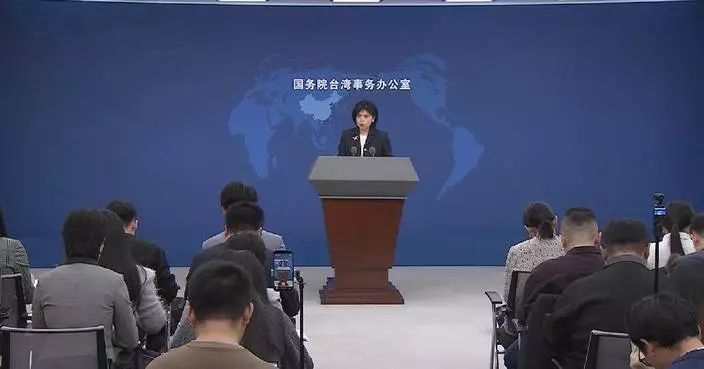
China opposes US military links with Taiwan region: spokeswoman

Taiwan entrepreneurs highlight gains from cross-Strait collaboration

Australia mourns victims of Bondi Beach shooting with flags at half-mast

China creates 12.1 mln urban jobs in Jan-Nov
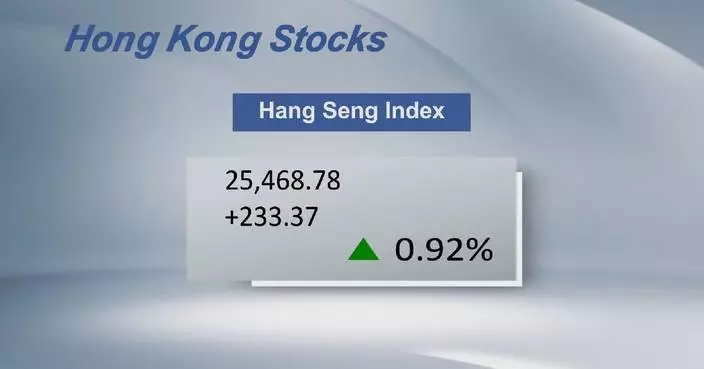
Hong Kong stocks close 0.92 pct higher

A timeline of the US military's buildup near Venezuela and attacks on alleged drug-smuggling boats

HKMA Warns Public About Recent Banking Scams and Fraudulent Websites
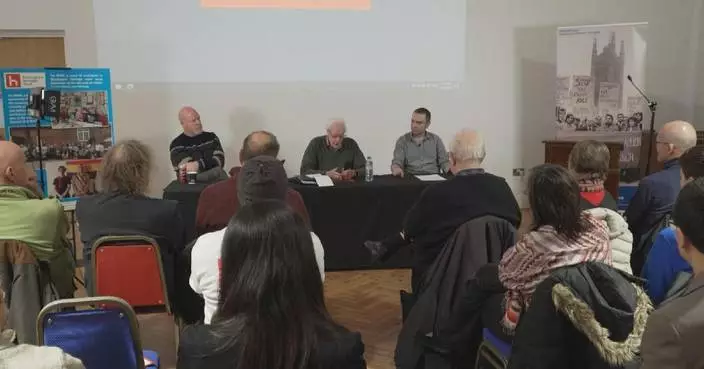
Veteran British witness on Japan's WWII atrocities in China

Hainan's deep-water port gears up for customs upgrade

Verdict on Lai's case reflects judicial fairness: HK district councillor

Expanding domestic demand top priority in 2026: Chinese economic official

Hainan free trade policies help coffee factory unlock global opportunities
Australia mourns victims of Bondi Beach shooting with flags at half-mast
China creates 12.1 mln urban jobs in Jan-Nov
Hong Kong stocks close 0.92 pct higher

A timeline of the US military's buildup near Venezuela and attacks on alleged drug-smuggling boats

More South Korean actors seek Hollywood dream after global success of Korean entertainment

Taiwan's ban of mainland social media app a case of political manipulation: spokeswoman
China activates safety measures as severe cold wave sweeps multiple regions

China's normal defense cooperation with Thailand, Cambodia bears no relation to their current clashes: spokesman

China opposes US military links with Taiwan region: spokeswoman
Taiwan entrepreneurs highlight gains from cross-Strait collaboration

HKMA Warns Public About Recent Banking Scams and Fraudulent Websites
Veteran British witness on Japan's WWII atrocities in China
Hainan's deep-water port gears up for customs upgrade
Verdict on Lai's case reflects judicial fairness: HK district councillor
Expanding domestic demand top priority in 2026: Chinese economic official
Hainan free trade policies help coffee factory unlock global opportunities
Feature·Bloggers

【What Say You?】The “Shina-Implosion” Playbook Behind Jimmy Lai

【Ariel】Insider Breaks Silence: 2019 Was Orchestrated — And He Names Who Pulled the Strings

【InsightSpeak】The executive–legislative relationship under a new electoral culture

【What Say You?】Trump and Starmer Barely Bother with Jimmy Lai – Just Lip Service to Check the Box

【Ariel】9 Arrested for Illegal Drills: Tai Po Fire Lurkers Ready to Strike

【Mark Pinkstone】The return of Roach and his poisoned tongue

High winds batter water-logged Northwest, killing Idaho man and cutting power to half a million
- More drops for AI stocks drag Wall Street toward a 4th straight loss
- The Lumbee Tribe's federal recognition is assured, with a final push by Trump
- MTF Biologics’ AmnioBand® Membrane and AlloPatch® Pliable Confirmed as Covered Under Updated CMS Local Coverage Determinations
- Israel fires mortar into Gaza residential area, wounding at least 10
- Meet the 4 Republicans who defied House Speaker Mike Johnson on ACA subsidies
- Trump will witness the dignified transfer of 2 National Guardsmen and an interpreter killed in Syria
- 4 Republicans defy Speaker Johnson to force House vote on extending ACA subsidies
- Inspiring Leadership Recognised: Anna Byrne Named Finalist at CIPD 2026 HR Awards
- OMNIVISION Announces Industry’s Lowest-Power Single-Chip Full-Color Sequential Microdisplay for the Latest Generation Smart Glasses

Decoding Hainan's strategic blueprint for modern industrial system
- Former official urges Thailand, Cambodia to make people priority, end border clashes
- Bondi community gathers to honor victims after beach shooting
- China’s service industry maintains steady growth in Jan-Nov
- China's agricultural exports expand during past five years
- China reaffirms sovereignty over Xianbin Jiao, denounces Philippines' false accusations
- Ceasefire in Gaza remains fragile: UN official
- International Claims Commission for Ukraine launched in Netherlands
- Hong Kong reclaims top global IPO market ranking
- Stunning ice sculptures shine at world's largest ice and snow theme park in northeast China

The Oscars will move to YouTube in 2029, leaving longtime home of ABC
- Billionaire Ray Dalio joins push to fund Trump Accounts, pledging $75 million to Connecticut kids
- Hexagon Cup, 54 and International Padel Federation unite to create the Hexagon World Series, the sport's first official team circuit, unifying the padel calendar alongside Cupra FIP Tour and Premier Padel
- Warner Bros recommends investors reject Paramount's offer in favor of Netflix's
- FUTURE FUND OMAN COMMITS $1.2 BILLION AS $5.2 BILLION INVESTMENT PROGRAM ACCELERATES ECONOMIC DIVERSIFICATION
- Takeaways from The Associated Press report on Myanmar's crackdown on cyberscam centers
- Myanmar declares a 'zero tolerance' policy for cyberscams. But the fraud goes on
- Robotin Unveils World's First Modular Robot Carpet Wash & Vacuum & Mop at CES 2026
- Hong Kong Chinese Women’s Club College Wins Gold Award at the 2025 Hang Lung Mathematics Awards
- EZCast Elevates Wireless Display Performance with New Solutions at CES 2026
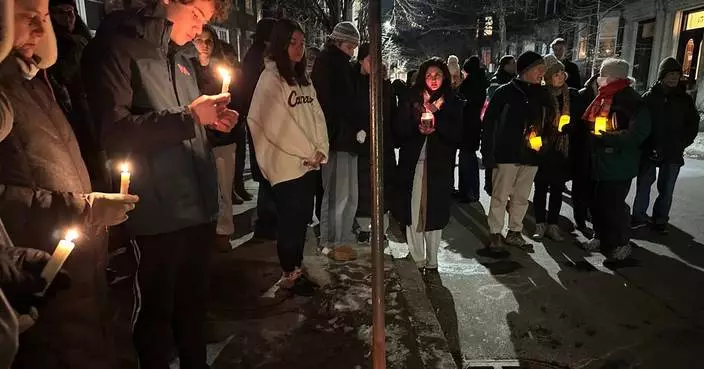
What to know about MIT professor Nuno Loureiro and the investigation into his shooting
- Shooting of MIT professor Nuno Loureiro has police searching for a suspect
- New York governor says she has reached a deal to legalize medically assisted suicide
- Saturn's moon Titan may not have a buried ocean as long suspected, new study suggests
- France probes 'foreign interference' after remote control malware found on passenger ferry
- Good news: Behind the scenes of some of the most uplifting stories of 2025
- Takeaways from the AP's report on the impact of aid cuts on Rohingya children in Bangladesh
- Hyundai and Kia will repair millions of vehicles under a deal to fix anti-theft technology
- University of Maryland, Baltimore and Axis Research & Technologies Announce Joint Venture to Build Nation’s First AI-Powered Smart Surgical Performance Center
- A photographer finds thousands of dinosaur footprints near Italian Winter Olympic venue

Movie Review: The Neil Diamond-inspired 'Song Sung Blue' hits all the wrong notes
- Rob Reiner’s son Nick set to appear in court on 2 counts of murder in killing of his parents
- 'Buck Rogers' star Gil Gerard dies at 82
- Strikes and a $100 million heist push the Louvre into historic crisis
- What Americans think about giving cash as holiday gifts, according to a new AP-NORC poll
- Haunted house and invisible demons: Tennessee Williams' early radio play 'The Strangers' publishes
- Christine Baranski narrates 'A Christmas Carol' before returning for new 'The Gilded Age' season
- Billy Crystal, Albert Brooks and other close friends of Rob and Michele Reiner pay tribute
- Close friends of Rob and Michele Reiner release statement on their lives and work
- Killings of Rob Reiner and his wife stun Hollywood as decision on charges for their son looms

Dolphins benching Tua Tagovailoa for rookie Quinn Ewers, AP source says
- Detroit Tigers, closer Kenley Jansen finalize $11 million, 1-year contract with 2026 club option
- Chiefs' Patrick Mahomes begins rehab after knee surgery with eye on Week 1 return in 2026
- Knicks won't hang an NBA Cup championship banner at Madison Square Garden, AP source says
- Winter Olympics 2026: How to watch and key things to know about the Milan Cortina Games
- World Cup winner to get $50M from richer prize pool, half of Chelsea's payday at Club World Cup
- Women's Club World Cup dates confirmed for January 2028
- Twins change lead owner from one Pohlad to another, as 3 new investor groups become limited partners
- NFL playoffs will miss Mahomes, Brady and Manning for the first time since the 1998 season
- Carlos Alcaraz ends 7-year partnership with coach Juan Carlos Ferrero

Government Task Forces Mobilize $3.8 Billion Fund for Wang Fuk Court Fire Relief Efforts
- Legionnaires' Disease Case Investigated at St Paul's Hospital After Patient's Death, Nosocomial Infection Suspected
- ASF Virus Detected in Yuen Long Pig Farm; Transportation Suspended and Culling Initiated
- Hong Kong Prepares for Increased Visitors This New Year’s Eve with Enhanced Transport and Crowd Management Plans
- Amaar Jewels Expands in Hong Kong, Tapping into Asian Luxury Market Opportunities
- Hong Kong and Guangdong Strengthen Environmental Cooperation at Joint Working Group Meeting
- Guides Released to Simplify Countryside Guesthouse and Food Business Licence Applications
- Hong Kong Launches Pilot Medical Subsidy for Elderly Care in Guangdong, Partnering with Taiping Life Insurance
- Community Dental Support Programme Expands Services for the Underprivileged Starting January 1
- Hong Kong Customs Arrests Individual for Unregistered Gold Bar Transaction Exceeding HK$120,000

China-Laos Railway handles 16 mln tons of goods
- STAR Market fuels China's aerospace innovation
- Spokeswoman reiterates resolute opposition to foreign interference in Taiwan question
- China reaffirms commitment to global anti-corruption cooperation at UNCAC conference
- Coast guard launches law enforcement drill in preparation for Hainan's special customs operations
- Int'l experts hail potential of Hainan's special customs operations ahead of launch
- Syrian returnees struggling to rebuild lives from ruins
- MetaX shares soar 687.79 pct on trading debut
- Aircraft carrier Shandong concludes last training mission in 2025
- Cuba condemns US seizure of Venezuelan oil tanker amid energy crisis
Category · News

Dolphins benching Tua Tagovailoa for rookie Quinn Ewers, AP source says

High winds batter water-logged Northwest, killing Idaho man and cutting power to half a million

More drops for AI stocks drag Wall Street toward a 4th straight loss

The Lumbee Tribe's federal recognition is assured, with a final push by Trump

MTF Biologics’ AmnioBand® Membrane and AlloPatch® Pliable Confirmed as Covered Under Updated CMS Local Coverage Determinations

Israel fires mortar into Gaza residential area, wounding at least 10

Detroit Tigers, closer Kenley Jansen finalize $11 million, 1-year contract with 2026 club option

Meet the 4 Republicans who defied House Speaker Mike Johnson on ACA subsidies

Trump will witness the dignified transfer of 2 National Guardsmen and an interpreter killed in Syria

Chiefs' Patrick Mahomes begins rehab after knee surgery with eye on Week 1 return in 2026

Knicks won't hang an NBA Cup championship banner at Madison Square Garden, AP source says

4 Republicans defy Speaker Johnson to force House vote on extending ACA subsidies

Inspiring Leadership Recognised: Anna Byrne Named Finalist at CIPD 2026 HR Awards
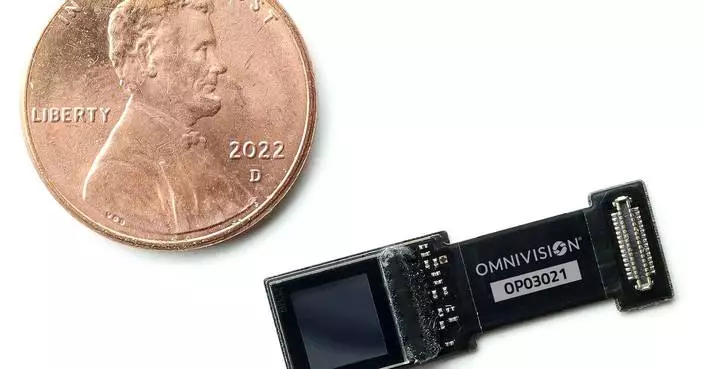
OMNIVISION Announces Industry’s Lowest-Power Single-Chip Full-Color Sequential Microdisplay for the Latest Generation Smart Glasses

What to know about MIT professor Nuno Loureiro and the investigation into his shooting

Webstar Technology Group Closes on Downtown 10‑Acre Site, Launching Forge Atlanta - The City’s Largest Mixed‑Use Development

The oil blockade threat creates anxiety in Venezuela but people stick to their daily lives
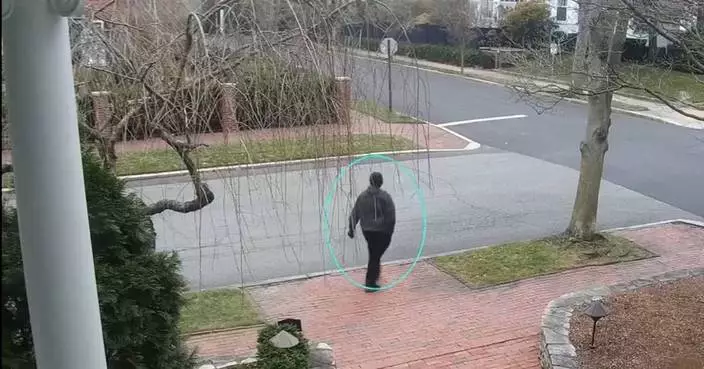
Investigators seek older video that might show the Brown campus shooter days before the attack

The Latest: 4 Republicans join Democrats on extending ACA subsidies, defying Speaker Johnson

The Oscars will move to YouTube in 2029, leaving longtime home of ABC

Winter Olympics 2026: How to watch and key things to know about the Milan Cortina Games

World Cup winner to get $50M from richer prize pool, half of Chelsea's payday at Club World Cup

Keller Williams Names Patrick Ferry to Drive AI- and Online Brand-First Agent Business Growth
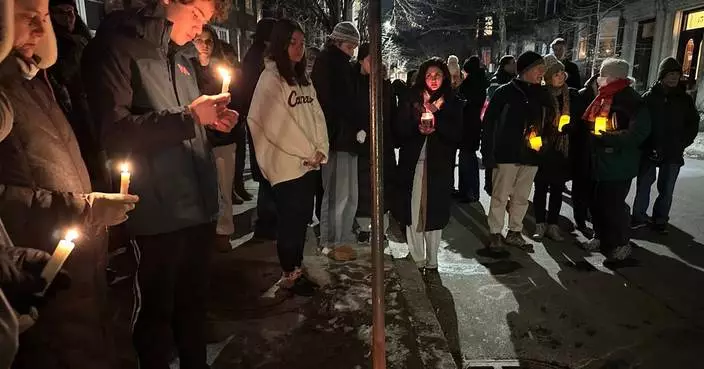
Shooting of MIT professor Nuno Loureiro has police searching for a suspect

Trump's National Guard deployment in Washington can continue for now, an appeals court says

Senate passes $901 billion defense bill that pushes Hegseth for boat strike video

Movie Review: The Neil Diamond-inspired 'Song Sung Blue' hits all the wrong notes

Billionaire Ray Dalio joins push to fund Trump Accounts, pledging $75 million to Connecticut kids

The Hyatt Centric Brand Debuts in Puerto Rico with Hyatt Centric San Juan Isla Verde

Hexagon Cup, 54 and International Padel Federation unite to create the Hexagon World Series, the sport's first official team circuit, unifying the padel calendar alongside Cupra FIP Tour and Premier Padel

Women's Club World Cup dates confirmed for January 2028

Myanmar's military government charge hundreds with breaking election law as voting date nears

Twins change lead owner from one Pohlad to another, as 3 new investor groups become limited partners

Rob Reiner’s son Nick set to appear in court on 2 counts of murder in killing of his parents

Warner Bros recommends investors reject Paramount's offer in favor of Netflix's

New York governor says she has reached a deal to legalize medically assisted suicide

Tracking the retirement announcements of members of Congress

FUTURE FUND OMAN COMMITS $1.2 BILLION AS $5.2 BILLION INVESTMENT PROGRAM ACCELERATES ECONOMIC DIVERSIFICATION
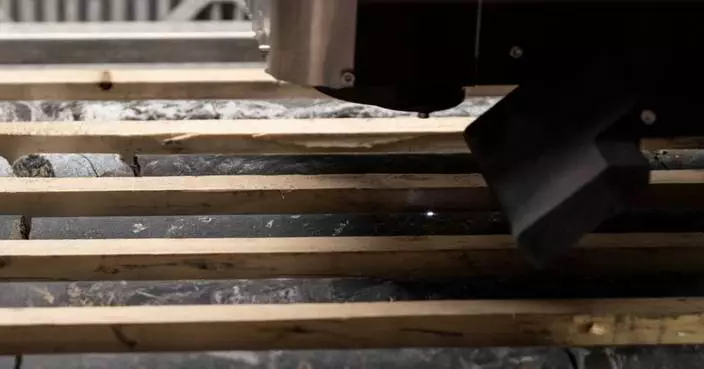
GeologicAI Announces Acquisition of Lumo Analytics to Complete Its Integrated Sensor Suite Across Critical Minerals and Rare Earth Elements

Georgia Senate committee questions Fani Willis over Trump prosecution
Decoding Hainan's strategic blueprint for modern industrial system
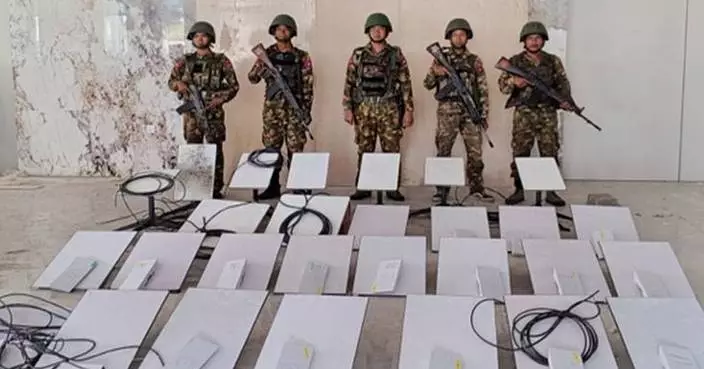
Takeaways from The Associated Press report on Myanmar's crackdown on cyberscam centers
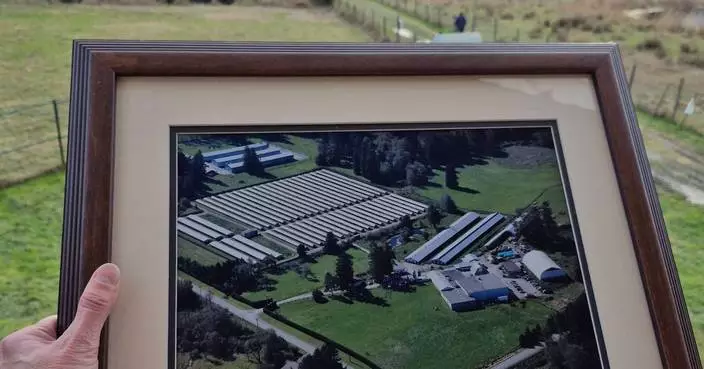
Banned and Bankrupted by B.C. Government, Canada’s Heritage and Artisanal Mink Breeders Withdraw Their Lawsuit

Myanmar declares a 'zero tolerance' policy for cyberscams. But the fraud goes on

Putin warns that Russia will seek to extend its gains in Ukraine if peace talks fail

Robotin Unveils World's First Modular Robot Carpet Wash & Vacuum & Mop at CES 2026

Hong Kong Chinese Women’s Club College Wins Gold Award at the 2025 Hang Lung Mathematics Awards

'Buck Rogers' star Gil Gerard dies at 82

Saturn's moon Titan may not have a buried ocean as long suspected, new study suggests

EZCast Elevates Wireless Display Performance with New Solutions at CES 2026

Voloridge Health Announces Sponsorship of World Champion Speed Skater Jordan Stolz

Haier Malaysia Welcomes the 7th Global Fans Festival with Immersive Pop-Up Experience at Pavilion Bukit Jalil

Jack Smith tells lawmakers his team developed 'proof beyond a reasonable doubt' against Trump

How large-scale AI powered video intelligence transforms efficiency and accelerates smart manufacturing

Spanish police evict hundreds of migrants from squat deemed unsafe

Dalios Double Down on Connecticut’s Youth

Government Task Forces Mobilize $3.8 Billion Fund for Wang Fuk Court Fire Relief Efforts

France probes 'foreign interference' after remote control malware found on passenger ferry
Former official urges Thailand, Cambodia to make people priority, end border clashes

HiTHIUM Unveils the World's First 8-Hour-Native Energy Storage Solution for All-Weather Green Power

Lifelong Learning Answers the Call of Central Valley Nonprofits’ Urgent Appeal

TCL to Display the Future with Advanced Visual Innovations and AI-Powered Product Portfolio at CES 2026

Louvre workers vote to extend a strike as the museum partially reopens

Legionnaires' Disease Case Investigated at St Paul's Hospital After Patient's Death, Nosocomial Infection Suspected

Strikes and a $100 million heist push the Louvre into historic crisis

NFL playoffs will miss Mahomes, Brady and Manning for the first time since the 1998 season

Knightscope Accelerates Past Another $1 Million in New Sales, Renewals & Expansions

Ideagen Achieves Market-Leading AI Scores, Leading the EHSQ Software Revolution

WATT Fuel Cell Advances Commercial Rollout with First 2 kW WATT HOME™ Installation in Clarksburg and Initial Shipments to Hope Gas Ahead of 2026 Residential Launch

Carlos Alcaraz ends 7-year partnership with coach Juan Carlos Ferrero

South African authorities raid a US refugee processing center and Washington protests

Taylor Wessing Diversifies Its International Strategy

75% of Americans to Maintain or Increase Charitable Giving Through End of 2025, Church Mutual® Survey Finds

Incheon Free Economic Zone Authority to Present Incheon’s AI City Vision at CES 2026 under the Theme ‘Destination Incheon’

Wrangler and Cherry - When Heritage Found Its Horsepower

Hyatt Studios Huntsville Opens in Alabama, Bringing New Upper-Midscale Extended Stay Brand to ‘Rocket City’
Bondi community gathers to honor victims after beach shooting

Trump is previewing his 2026 agenda in an address to the nation as his popularity wanes

Bybit CEO Highlights Compliance and Decentralized Innovation at Solana Breakpoint 2025

Makera Z1 Surpasses $10 Million on Kickstarter, Ushering in a New Era of Desktop CNC Manufacturing
China’s service industry maintains steady growth in Jan-Nov

Community West Bancshares and United Security Bancshares to Merge
China's agricultural exports expand during past five years

Make Practicality Stylish This Holiday Season with JustHang Squeegee










































